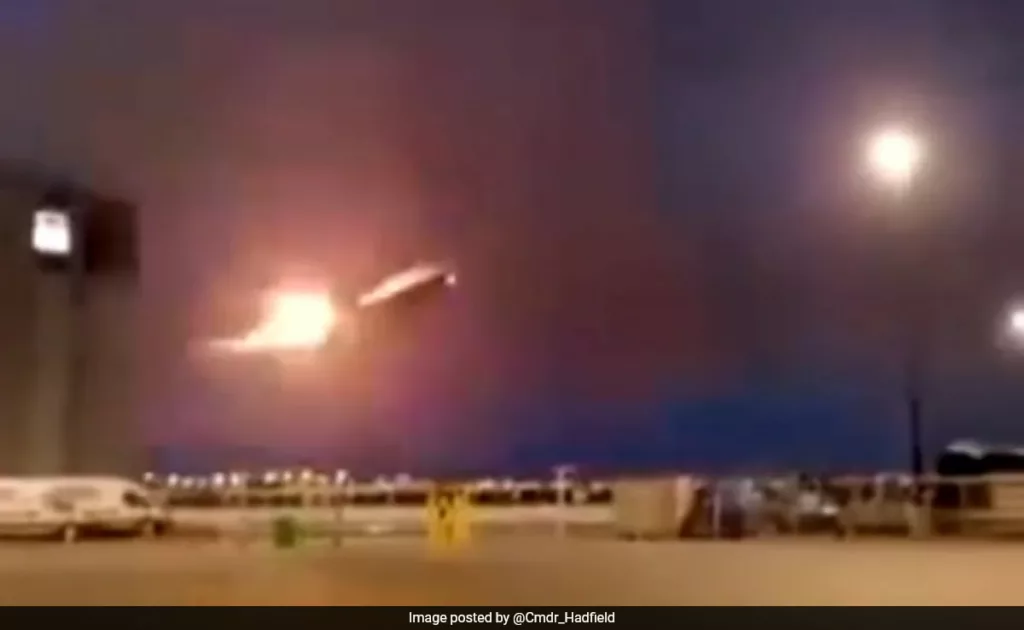An Air Canada flight, headed for Paris with 389 passengers and 13 crew, caught fire within minutes of taking off from the Toronto Pearson International Airport on Friday.
The flight crew immediately declared “PAN-PAN”, or ‘Possible Assistance Needed’ – the standard distress signal internationally, and averted a possible catastrophe as the aircraft returned to the airport without any injuries or casualties.
Superb work by the pilots and their air traffic controllers, dealing with a backfiring engine on takeoff. Heavy plane full of fuel, low cloud thunderstorms, repeated compressor stalls. Calm, competent, professional – well done!
Details: https://t.co/VaJeEdpzcn @AirCanada pic.twitter.com/7aOHyFsR29— Chris Hadfield (@Cmdr_Hadfield) June 7, 2024
On Friday, the Boeing 777 wide-body aircraft began departure at 12:17 am (Toronto time). Shortly after take-off, at 12:39 am (Toronto time), as the flight was still ascending over the runway, the air traffic controller (ATC) spotted the first blast of sparks from the plane’s right engine and promptly alerted the crew. The backfiring engine was caught on camera by people on the ground.
The incident adds to the long list of mishaps that have been reported on Boeing’s craft over the past several months.
Astronaut Chris Hadfield shared a video of the aircraft flying with an engine on fire and wrote: “Superb work by the pilots and their air traffic controllers, dealing with a backfiring engine on takeoff. Heavy plane full of fuel, low cloud thunderstorms, repeated compressor stalls. Calm, competent, professional – well done!”
He also shared a reconstruction video, posted on YouTube by ‘You can see ATC‘, of what followed along with a recording of the pilot’s communication with ATC. According to the video, the flight was 1,000 feet over the ground when Air Canada pilots were alerted about smoke and fire. The flight path in the video showed the craft continuing its ascent before cruising steady at 3,000 feet. The pilots then deftly turned the craft around and returned to Toronto in lightning and showers scattered at 2,800 feet.
The ATC cleared Runway 23 for the distressed aircraft to land with fire vehicles standing by for assistance.
Within four minutes of landing, the aircraft continued taxiing, according to the video.
Air Canada put out a statement on X and said that a stalled compressor caused the fire. “The aircraft landed normally, and it was met by first responder vehicles as a precaution before it taxied to the gate on its own.”
Update on flight AC872 from June 5: pic.twitter.com/lkruMaM7KH
— Air Canada (@AirCanada) June 7, 2024
“Passengers were accommodated on another aircraft later that same evening,” the airline noted.

